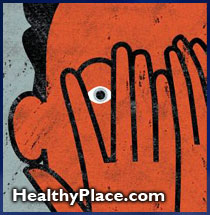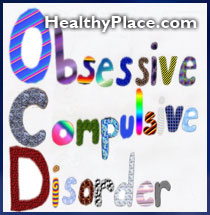Strategies for Recovering From Bulimia and Other Eating Disorders


Judith Asner, MSW is a bulimia treatment specialist and eating disorders coach. Ms. Asner founded one of the first outpatient eating disorders treatment programs on the east coast. She is also the sitemaster for Beat Bulimia inside the HealthyPlace.com Eating Disorders Community.
Ms. Asner discusses the importance of having a strategy for recovering from bulimia and other eating disorders. She maintains that trying to recover from bulimia without a plan is extremely difficult; next to impossible. She outlines the components of an eating disorders treatment plan. Audience members questioned Ms. Asner on how to stop the binge/purge cycle, episodic binging and purging, the fact that dieting, for recovered bulimics, triggers of a relapse, and more.
David is the HealthyPlace.com moderator.
The people in blue are audience members.
David: Good Morning. Welcome to HealthyPlace.com and our chat conference on "Recovering From Bulimia: What You Need To Know." I'm David Roberts, the moderator. Our guest is Judith Asner, MSW. Ms. Asner is a psychotherapist who specializes in treating bulimics and those who suffer from other eating disorders. She started one of the first outpatient programs for eating disorders in 1979 on the East Coast. She is also the owner of the Beat Bulimia website here at HealthyPlace.com and does life-coaching; helping people via telephone. Ms. Asner graduated from one of the top executive coaching schools in the U.S., The Hudson Institute. You can click here for a definition of bulimia. For comprehensive information on eating disorders, visit the HealthyPlace.com Eating Disorders Community.
I received an note from Ms. Asner, recently, saying that a lot of the email she received came from people who stated they had tried to recover from bulimia or other eating disorders and weren't doing very well. So they decided to give up. Like there was only one way to recover and if that didn't work, than that's that. And Judi mentioned to me that from her vantage point, as a psychotherapist, she could see that many didn't even understand the basics of eating disorders recovery, much less have a strategy for recovery. So that's what we're going to be talking about this morning.
Good Morning Ms. Asner and welcome to HealthyPlace.com.
Judith Asner: Hello, David and guests and welcome. It's always a pleasure to be here with you, David.
David: When you talk about a strategy for recovery from bulimia, what are you saying exactly?
Judith Asner: Well, I am talking about a plan, David. Nothing proceeds without a strategy; long term and short-term goals. A plan goes this way: First, one has to have health professionals on a team. There is no way around that because bulimia nervosa is a disease. This team has to begin with an internist to cover one's physical condition and follow it. Next, a psychiatrist is needed to evaluate wheteher or not the person is suffering from a biological depression or other condition.
David: Before we get deeper into that, I want to ask this question: Is is POSSIBLE for everyone or anyone to recover from their eating disorder? Or are there some people who, no matter what they try or how hard they try, will never recover?
Judith Asner: I believe where there is a will there is a way. But statistically, there is a percentage that does not recover and remains chronic. However, I never give up on ANYONE. With bulimia, about 20 percent remain chronically bulimic.
Let us define recovery, David. A person may feel much better about themselves and still have some eating problems but have a much better sense of self and function well, but have episodic binges and purges. This is not full recovery, but it is a far sight better than being in the throws of full-blown bulimia, daily. I consider this a victory. I don't look for perfection in life. I look for some balance in a person's life. If a person falls back into bulimic patterns, I try to help them out of the downslide as fast as possible and help them get back on their feet, understand the stressors and make the next time easier. This, to me, is pretty good progress. If a person never purges again, hooray. I just hope a person can feel valuable, have a good sense of self, be kind to themselves and others, and if they slip, so be it. It's over and let's get back to living as fully as possible. If the person can go for success every day, God bless them. Hooray for them--what a victory.
David:Earlier, you mentioned that recovery begins with having a team of professionals to help you and that there was no way to effectively recover without that team. I'm assuming you are talking about needing an internist, a psychiatrist and maybe even a nutritionist. Am I right?
Judith Asner: Yes, David. Now I am not saying a person can NEVER do it alone. Let me modify that. Certainly self-help books on eating disorders, family and peer support, faith and faith-based groups, and overeaters anonymous are enormously helpful. But when there is a serious case of bulimia with underlying depression, anxiety or bipolar illness, which we call a comorbid condition or dual diagnosis, medication is necessary, monitoring of the physical condition by an internist is essential and a sound nutritional plan and exercise in the appropriate amount are important elements in the eating disorders treatment plan.
David: Judi, we have a couple of audience questions I want to get to that pertain to what we've talked about already, then we'll continue with our discussion on a "Recovery Plan for Bulimia." Here's the first question:
rcl:How do you know if you are in that 20% that are chronic and may not recover significantly and, if you are, what should you do?
Judith Asner: If you have had bulimia for say 5-10 or more years and you throw up for 3 or more times a week, go to the drawing board again. Look at what has and has not worked in the treatment before. Have you been to an inpatient facility? Have you been reevaluated for psychotrophic medications? There are many, many new medications on the market in the past years. Have you seen a psychotherapist who has worked extensively with the disorder or, in fact, had it? Have you gone to OA meetings daily? Have you hired a coach? Have you stuck to a firm nutritional plan?
|
|
David: We have some questions regarding limited financial resources:
maren:And if your financial resources are limited, then what? Are there many self-help groups at universities?
teetime: I have had a eating disorder for 4 years and do not know how to get help. Money is a big problem.
Judith Asner: Yes, Overeaters Anonymous has a meeting every day in every city. You could also apply any 12-step program's principals to eating disorders. Also on my website beatbulimia.com, you can find some free resources. Colleges have groups and you can start your own groups . The local hospitals also have self-help groups that are free.
David: So to recount what we've said about having a strategy to recover from bulimia or any eating disorder: First you need an overall strategy, a plan that you can use to guide you in your recovery, rather than just haphazardly trying things. Part of that plan is starting with a team of professionals working with you: an internist, a psychiatrist, a nutritionist and others. Or if you are limited in your financial resources, participating in self-help support groups like OA can help. What about a meal plan of some sort?
Judith Asner: Yes. That is true. And the drop-in groups at hospitals. You could also go to www.clinicaltrials.com and see if you could qualify for a clinical trial of some type. A meal plan is so essential. It is a road map for a trip. We just don't drive to a mountain resort without a map, do we? No business can proceed without a business plan. Well, we are organizations, just like a business or institution.
David:What is meant by a "meal plan"?
Judith Asner: A plan for breakfast, lunch, dinner and in-between snacks that is planned the day before, with the day's acitivites in mind. There can be substitutions but the person basically has to know that they can eat X amount of calories per day without gaining weight and that if they stick to this plan they will not have to binge and purge to maintain normal weight. Most people with bulimia do not believe they can eat 3 normal means and be a normal weight. This just isn't true. That is the reason that working with a registered diatecian is so important. A meal plan usually follows the guidelines of the American Dietetic Assn. plan and is balanced and healthy.
David, sometimes people don't stick to a meal plan. Well, that is okay. Use the slip as feedback information to understand what went wrong and go back and revision that scenario again and again in your mind. Then do scenario planning again. Keep using slips as feedback information to continue to learn about yourself and keep going until you get it right. It's like tennis. I think people have to try their backhand about 3,000 times until they get it right. But they never give up.
coolwaters: If you throw up after every meal you eat, does that make it impossible for recovery?
Judith Asner: If you stop throwing up, it will be possible to recover. You have to figure out how you are going to stop throwing up after every meal. That is very serious. You are not keeping any nutrition in your body and can be very seriously harming yourself.
fairydust:But how do you fight the urge to binge? If I eat 3 meals a day and binge/purge too, I'm sure I'll put on weight
Judith Asner: If you work with a nutritionist and have 3 healthy meals a day, you will not want to binge because your body will be full on what it needs and you will not crave the binge foods. If you have an emotional need to binge or you are controlling your mood by bingeing or you have a compulsion to binge, you can get help . Medications help control compulsions and emotions can be discussed with a therapist. This is what I mean by a team. Also, by going to a self-help meeting everyday, such as OA, you will get help with your assumptions, which are false, that you can;t eat normally.
AnnetteK99: For the last 8-9 yrs., I've bounced back and forth between bulimia and anorexia. Everytime I try to get better, it lasts for like a week or two. Then I plummet again. Any suggestions?
Judith Asner: Yes. Get continual help, both group and individual, to find out how you can break through this pattern of self-defeat. Also, do you have a mood disorder that is a cycle, called bipolar? If you think you might, I encourage you to see a psychologist or psychiatrist for an evaluation.
David: Some audience members have questions regarding medical issues associated with eating disorders.
Bobski:I am just as you describe. I'm not a daily bulimic anymore. I'm getting much better. I have had the eating disorder for 9 years. I used to binge and purge many times a day. I am now down to a couple of times a week. I have seen multiple therapists and I have been put on antidepressant medication. I do not know what else to do. How can I take my recovery to the next level.
Judith Asner: I happen to think that coaching is a great way to take the eating disorder to the next level, if you are highly functional in every other way. How about mood stabilizers? Have they been tried with antidepressants? Has group therapy been tried? It is great that you are down to a few times a week. I would have to know more about you. It is complicated but you have come far. I would say reevaluate the medications and rethink the strategy. You can go farther. Don't stop now.
For people who are almost recovered, like you, I have some additional thoughts. Let's suppose you are writing a business plan or a strategy about yourself. How would you take yourself to the next level? How about an overall strategy. Get a team of people around you. Have them fulfill different functions. Divide the difficult times into units and ask someone to monitor each unit with you. Assign yourself tasks around the 3 times a week to help you through them. Have a person with you at that time. In other words, you young women who have had the advantage of being out in the business world can apply some of your extraordinary common sense and business training to your own situations!!!!!
|
|
David:As I mentioned earlier, Ms. Asner is not only a licensed psychotherapist, but she also graduated from one of the top coaching schools in the U.S. - The Hudson Institute.
Having a support system is another important part of the overall recovery strategy, isn't it Judi? And when you talk about that, what exactly do you mean when you say "support team"?
Judith Asner: Actually, your support team is anyone who cares about you. For me, being in the field I was where colleagues are so open and loving, I had permission to be whoever I was and still be loved for myself. So if I had bulimia 20 years ago, as a psychotherapist, it didn't matter. I don't know if you all can ask colleagues in the business world to watch out for you at a business lunch or ask an office buddy to help you with the donuts. It is a question of the culture you are in. But any friend, relative, pal, associate or lover who cares about you can be part of your team. I have my coaching clients email me about how the day has gone, and believe me, I look for those emails and look forward to them. Your team consists of anyone who sincerely cares about the well-being of another and is willing to lend a hand. My experience is that for every person who says "Ugh," thirty say, "I'm on board." Thank you, Oprah!!
David:Excellent point, Judith. Earlier you mentioned support groups. So maybe a person could find a support buddy there and not have the personal risk that one might face sharing the news of your eating disorder with a business associate, teacher, etc.
Judith Asner: Well, certain people are really links in the chain when it comes to helping us. Teachers usually know therapists and counselors and psychologists as do personal trainers and school guidance counselors and nurses. I wouldn't tell your CEO, if that is what you mean. Corporate America is not touchy feely and law firms are certainly not cuddly places. A buddy is a good idea. However, there are Employee Assistance Programs in most corportations and government agencies and the EAP counselors are bound legally to maintain privacy and send you to an appropriate treatment specialist.
David:One last thing I want to address, which you brought up to me in your email and then we'll go to more audience questions. "Practice" - the idea of trial and error. Can you elaborate on that, please?
Judith Asner: Yes. Just because one therapist has not been the right one for you, dont give up.You will eventually click. Ask your therapist if she has recovered from bulimia. If you keep failing on the food plan, keep trying. Go to OA meetings and get a sponsor. Use feedback to analyze what doesn't work. Figure out what were the triggers to "losing it" and try again and again.
David: Here's what Judith wrote me in the earlier email: There is no such thing as "it doesn't work" --you keep seeking, practicing, revising your plan until it works, changing this and that piece till the pieces fit.
Judith Asner: Also, do you belong to a spiritual community where you get sustenance or do you have a practice that is peaceful like yoga or do you spend some time helping others? This is part of a wholistic approach to life and recovery.
David: Let's get to some more audience questions. Earlier Judith, you said that recovery may mean a balance; not full-blown bulimia, but possibly sporadic episodes. Of course, if you had full-blown bulimia, that would be a great improvement. Here's a question on that:
tooey: What about people who consider episodic binging and purging to lead back to full-blown bulimia?
Judith Asner: Well, that is certainly a danger and that is why one must always let someone know immediately if the problem begins again and sort out the reason for the relapse---immediately!
Me5150:My husband is bulimic and refuses to believe he has a problem. I believe he is still binging and purging, but is hiding it more now than ever. How do I help him when he doesn't want to help himself?
Judith Asner: This is a tough question. Perhaps an intervention from those who love him would help. You can find that e-book on my web site beatbulimia.com. An intervention is a long process . I think men have a bigger problem admitting this than women.
liza5: Is it possible to "retrain" your body after you've had an eating disorder for a long period of time? I've been bulimic for 13 years, nothing "wants to stay" very long and it's very painful.
Judith Asner: Yes, you can retrain the body. We, and the body, are "miracles" and move toward wholeness and healing. First, get to a doctor to make sure everything in the gastrointestinal area is working well and then figure out what you can eat comfortable. There are meds that help with digestion and relaxation of your stomach and perhaps someone can stay with you and help you get used to that period that is so difficult after a meal.
jenniegator: Is there a physical withdrawal associated with recovery from bulimia?
Judith Asner: Oh, I would imagine there are lots of physical feelings that you would have to tolerate, real and imagined. That is what a professional can help you with, especially feeling fat when you are not.
pheobee:First, how do you get past that strong belief that you WILL gain weight no matter what?
Judith Asner: Well, in fact, you will rehydrate and gain some water weight because your cells have been dehydrated. But that is just 5 lbs. You will have to take that leap of faith and get lots of support from your team. And also, what will happen if you gain a few pounds? Is it perferable to the risk of dying?
|
|
pheobee:My therapist and I are both very frustrated because I continue to purge and I don't get any better. She doesn't really understand because she has never had an eating disorder and has only been a therapist for 2 years. Is it more helpful to have a therapist with more experience and/or personal experience?
Judith Asner: Yes. Your therapist may be a wonderful person and a great therapist, but she should know how to manage your binge-purge cycle. What good is it doing you if you and she are in the same place? She is supposed to know what to do to help you. Let her help you find a specialist in this area.
Joy Joy:I am a recovering bulimic. A 15 year bulimic and now add 15 years in recovery with only an occasional, short relapse. Most of the past 15 years I have held off the beast. I am unable to find a way to safely lose the recent gain of twenty pounds. Dieting always brings on a feeling of deprevation and binge eating and triggers a relapse. What can I do?
Judith Asner: Probably exercise is the way with weight lifting, or acceptance of yourself. How about Weight watchers?
Be strong: I'm in self help and I'm starting to relapse -- six times in this past week. Is it time to seek medical help? And, if so, how do I ask my parents?
Judith Asner: Yes. Just ask. They are your parents, you know. I don't think they want you to be sick.
FlamingFireOf*Peace*: I am 16 and was in wrestling for my freshman year. I am pregnant, 14 weeks. The urge to purge, like I used to when I had to cut weight for wrestling always comes back to me. How much harm can this do to my health, being in this position?
Judith Asner: A great deal. Go see a nutritionsit. You need to eat when pregnant. It is normal. Don't deprive the fetus of the nutrition it needs. It can do damage. Go NOW and find out the accurate information you need.
David: When it comes to addressing problem areas, some parents have trouble communiticating with their children. With that in mind, here's the next question: (for parents, read: Survival Guide for Parents with Eating Disordered Children and Help for Parents of Children with Eating Disorders)
LaurenD:How can I help my daughter?
Judith Asner: Can you be more specific?
David: I think what she means is how does a parent approach their child about their concern and what if the teen continues to deny there's a problem?
Judith Asner: If you KNOW that there really is a problem, I recommend you get the ebook, Intervention, on my site and read it. It tells how to intervene to help a youngster. The longer you wait, the more entrenched this behavior becomes. So deal with it right away if you have the evidence of vomiting, food disappearing.
David: Here's a helpful comment from a teen who's been there:
FlamingFireOf*Peace*: I know, being a teen myself, when my parent approaches me that, yes, I will deny a lot. But if they continue to show love towards me to help, I will open up to them. It's just a love of loving, not pushing, persistence.
David: Thank you, Judith, for being our guest today and for sharing this information with us. And to those in the audience, thank you for coming and participating. I hope you found it helpful. We have a very large and active community here at HealthyPlace.com. You will always find people interacting with various sites. Also, if you found our site beneficial, I hope you'll pass our URL around to your friends, mail list buddies, and others. http://www.healthyplace.com
Thank you, again, Judith, for being here this morning.
Judith Asner: Thanks, David and friends.
David: Have a good day everyone.
Disclaimer: We are not recommending or endorsing any of the suggestions of our guest. In fact, we strongly encourage you to talk over any therapies, remedies or suggestions with your doctor BEFORE you implement them or make any changes in your treatment.
|
|
APA Reference
Tracy, N.
(2007, February 26). Strategies for Recovering From Bulimia and Other Eating Disorders, HealthyPlace. Retrieved
on 2026, January 1 from https://www.healthyplace.com/eating-disorders/transcripts/strategies-for-recovering-from-bulimia-and-other-eating-disorders

 Good evening, Dr. Young and welcome to HealthyPlace.com. We appreciate you being our guest tonight. Many people talk about wanting to stop being anorexic, yet they find it extremely difficult to accomplish that. Why is that?
Good evening, Dr. Young and welcome to HealthyPlace.com. We appreciate you being our guest tonight. Many people talk about wanting to stop being anorexic, yet they find it extremely difficult to accomplish that. Why is that?





